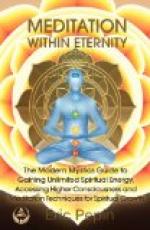But the most significant of the utterances of the illumined Nazarene is the one in which he said:
“Except ye become as little children, ye can in no wise enter the kingdom of heaven.”
The possession of cosmic consciousness brings with it, invariably, the simplicity, the faith and innocence of a little child. The child is pleased with natural pleasures, and does not know the worldly standard of valuation. And above all, the soul, while still attached to the physical body, is like a little child.
The attainment of cosmic consciousness is possible only to one who has first “got acquainted with his soul”; when we are really soul-conscious we possess the innocence (not ignorance), of a little child, and we also possess a child’s wisdom. We are, in other words, “as wise as the serpent and as harmless as the dove.” Wisdom brings with it harmlessness. The truly wise person would not wilfully harm any living thing; wisdom knows no revenge; no “eye for an eye” philosophy; makes no demands.
And what may be considered the second most significant remark of the Master is this:
“The kingdom of God cometh not with observation; neither shall they say Lo, here; or Lo, there, for Lo, the kingdom of heaven is within you.”
Jesus, although forced by the conventions of the time in which he taught to conform to the laws laid down by the scribes and Pharisees, influenced by the strict views of the Israelites, who honored the law laid down by Moses and the prophets, still possessed cosmic consciousness to such an extent that he knew the folly of judging others by outward appearance, and also of promising them cosmic consciousness in return for obedience to prescribed rules or commandments.
When it would seem to his critics that he did not sufficiently emphasize the traditional laws, that he was seemingly making it too simple and too easy for people to live, they sought to trap him into a statement that would oppose the accepted commandments.
But this Jesus steadfastly refused to do. “I came not to destroy the law, but to fulfill it,” he said.
Like all those who have experienced cosmic consciousness, his policy was one of construction, and not of destruction. Evolution accomplishes peacefully what revolution seeks to do by force.
Jesus laid little stress upon the commandments as they stood. He neither sought to emphasize them, nor to criticise them. All that he said was:
“A new commandment give I unto you: that ye love one another.”
All truly illumined minds have made love the basis of their teaching, well knowing that where true love reigns there can be no destruction.
Love conquers fear—the arch-enemy of mankind.
Love makes it impossible to harm the thing loved, and universal love would make it impossible, for one experiencing it, to consciously bring the slightest pain to any living thing.




